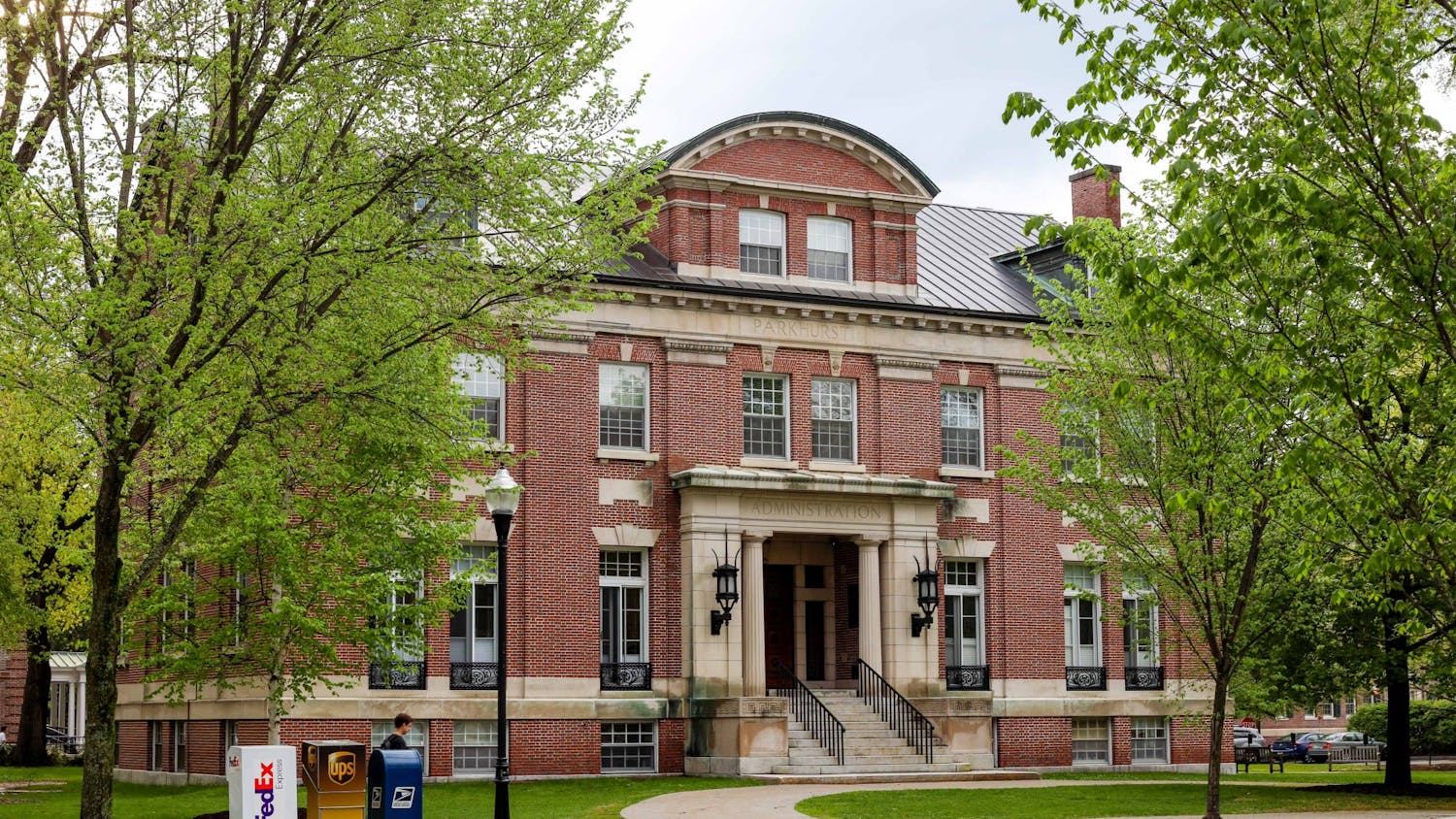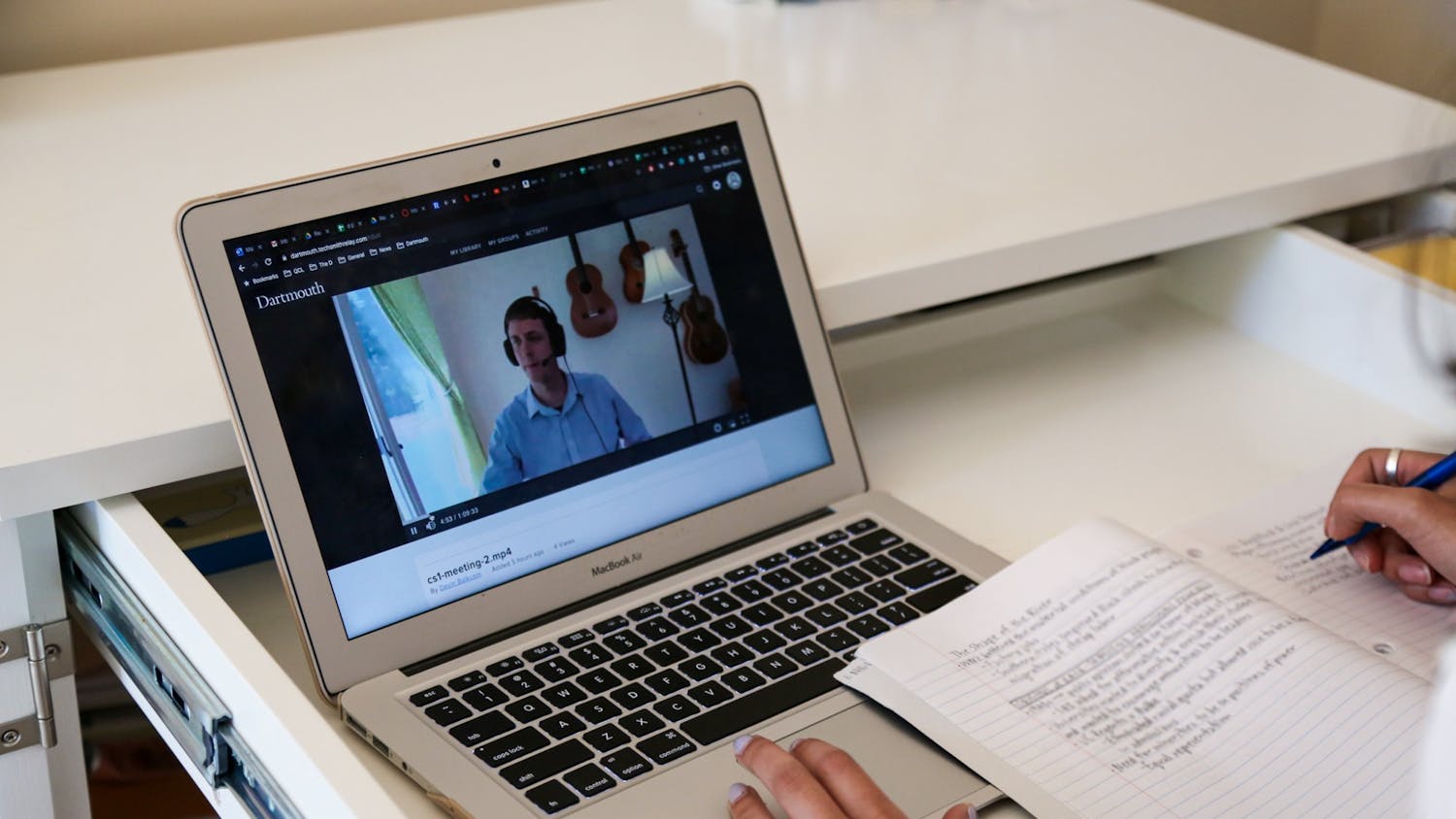Now that the summer term is officially remote, students and College officials alike have had to reconfigure their plans.
Provost Joseph Helble announced the decision to continue virtual learning for another term in an email sent out to the Dartmouth community on April 20.
In an interview with The Dartmouth, Helble said that the College had considered a “number of different options for summer term,” including adjusting the term’s start and end dates or conducting a partially remote term. Helble said that the College ultimately decided to continue remote learning for the entire summer term due to social distancing restrictions remaining in place and the unique challenges of a “hybrid term.”
“The logistical challenges of trying to bring students back in the middle of the term and recognizing that not everyone would be in a position to travel for such a short period of time was a major consideration in our decision-making process,” Helble said.
According to Helble, the task force and its working committees have now turned their attention to the fall term. He said that the College is considering a “full range of options,” including the possibility of a partially remote learning term. He added that the College anticipates making a decision in the “June to July timeframe.”
“The probability of a full residential, business-as-usual fall term is not very high,” Helble said. “That said, we are still in the very early stages of gathering information needed to make a decision.”
Members of the Class of 2022 will still be required to take summer classes during either the summer of 2020 or summer of 2021, according to Helble. He added that the College currently does not know how many sophomores will choose to defer their summer term requirement to next year.
Helble also confirmed that the College will return to regular grading for the summer term, replacing the credit/no credit system in place for the spring. He added that the administration is having ongoing discussions with faculty committees to determine what a normal grading system “will look like” during a remote term.
Katie Miller ’22 said that while she was not “super surprised” by the decision to move summer classes online, she was still disappointed by the prospect of continuing online classes.
Miller added that, so far, she has not found her experiences with online education to be “the best” and that she would not be excited about continuing remote learning this summer. She noted that as of now, she has not decided whether she will be taking online classes this summer.
Zoom and Canvas will continue to be the primary platforms for remote learning over summer term, and Slack will likely be more integrated into remote learning during the summer, according to vice president of information, technology and consulting Mitchel Davis. A new grading tool called Gradescope, which will allow multiple professors or teaching assistants to collaborate on grading and enable quicker grading of short answer questions, is also being tested and will potentially be used during the summer term, Davis said.
Three weeks before the start of spring term, Helble convened an academic task force consisting of members from the library, the center for the advancement of learning and ITC in order to facilitate the transition to online learning, according to Davis. He said that this task force is currently preparing to make summer courses remote.
Two weeks ago, the original task force proposed a second academic task force to focus on “making student and faculty online experience better” and creating “next level solutions for the summer,” Davis said. He added that these groups are waiting for Helble’s approval on their proposals, which he expects to come this week.
He said that with the new task force, the services provided to students “will be much better in the summer than it was in the spring.” One option to improve the online education experience involves expanding augmented and virtual reality use in the classroom when relevant, according to Davis. He noted that virtual reality could bring a new dimension to online instruction, citing an example in which students could use virtual reality platforms to examine certain physical aspects of Mars.
An informal, volunteer-based accessibility team of about 25 ITC staff members will continue to run during the summer, Davis added. He said that the team locates local internet providers and works with the financial aid office to upgrade students’ internet services, adding that the group has helped about 35 students so far.
Helble said that the College has begun investigating options to “slowly loosen” restrictions and re-open some parts of campus throughout the summer, adding that the College will allow some graduate students and postdoctoral fellows to return to continue their research as part of a “ramp up” of campus operations.
Becca Wade ’22 said that she is “very disappointed” that the term will be conducted virtually because sophomore summer is a “staple of Dartmouth” and the only opportunity for the sophomore class to have the campus to itself for a term. She noted that her situation is different from that of many sophomores, as she wanted to remain on during all fall, winter and spring terms for the lacrosse season and had already waived the summer enrollment requirement to do on-campus research rather than take classes.
Now that sophomore summer is officially remote, she said that she is looking to find local research opportunities since remote research opportunities on campus are sparse. She added that she still plans to seek an internship for her junior summer rather than join the ’23s on campus, as she stressed that “internships are so important” given the job offers that often come at the end of them.
As a result of both the continued closure of most residential and dining facilities and cancellation of summer camps, Helble said that the College is anticipating $6 to $8 million in losses over the course of the summer term. He also said the College may see further losses from continued closure of sources of “auxiliary income,” like the Hanover Country Club.




